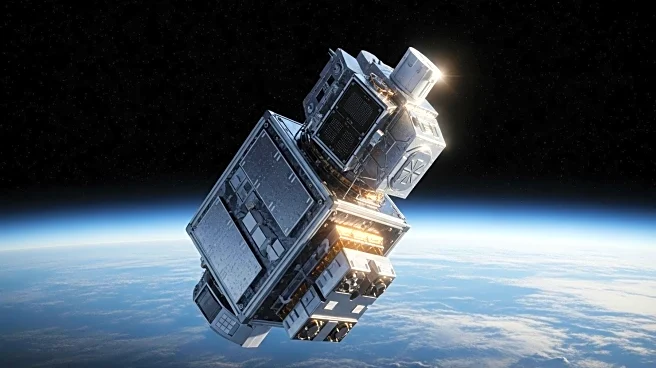What is the story about?
What's Happening?
GHGSat, a Montreal-based company specializing in greenhouse gas monitoring, has announced a new round of financing totaling $34 million. This funding, comprising both equity and debt, is aimed at expanding the company's satellite constellation and enhancing its analytic services. The equity portion of the funding round saw participation from Yaletown Partners, Fonds de solidarite FTQ, and BDC Capital, while the debt financing was provided by the National Bank of Canada with support from Export Development Canada. GHGSat, founded in 2011, currently operates 13 satellites that monitor methane and carbon dioxide emissions. The company has previously secured a total of 173 million Canadian dollars in equity and debt financing. Recently, GHGSat partnered with ExxonMobil to monitor methane emissions in North America and Asia.
Why It's Important?
The financing underscores the growing global demand for accurate emissions monitoring, a critical component in addressing climate change. GHGSat's technology provides precise measurements of greenhouse gases, moving beyond estimates to deliver actionable data. This capability is crucial for industries aiming to reduce their carbon footprint and comply with environmental regulations. The partnership with ExxonMobil highlights the increasing collaboration between technology firms and major corporations to tackle emissions. As industries face mounting pressure to demonstrate environmental responsibility, GHGSat's expansion could play a significant role in shaping sustainable practices across various sectors.
What's Next?
With the new funding, GHGSat plans to enhance its satellite technology and analytics capabilities, potentially leading to more comprehensive emissions data for industries worldwide. The company's focus on integrating emissions data into strategic decisions could influence how carbon-intensive industries operate, potentially leading to stricter emissions standards and innovative solutions for reducing greenhouse gases. Stakeholders, including environmental groups and regulatory bodies, may closely monitor GHGSat's progress and its impact on emissions reduction efforts.















